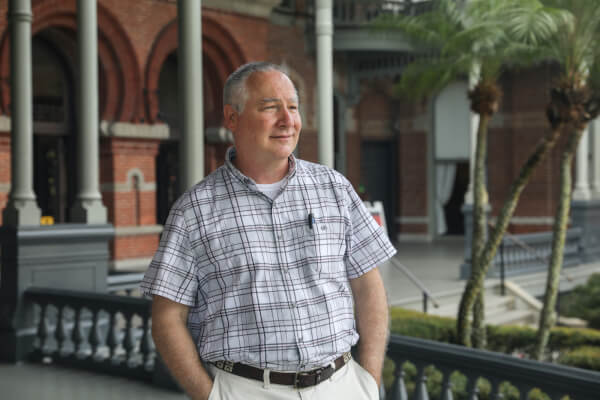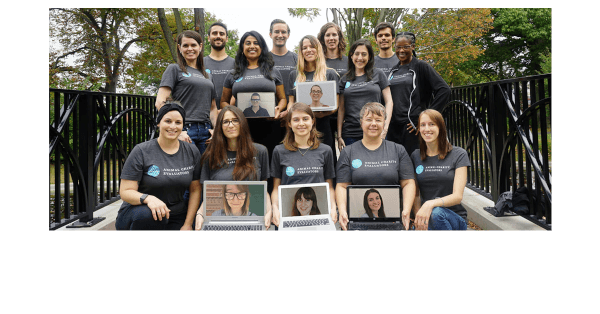For love and money: how talking about finances can unlock successful relationships
Discover how talking about finances can unlock successful relationships. By: Damona Hoffman, dating and relationship coach

Half a century after they reached Number 1 in America with Time Of The Season, the Zombies have just been inducted into the hallowed Rock and Roll Hall of Fame. Rod Argent and Colin Blunstone talk about success in the age of social media, and the enduring power of their music.
Wise is a new way of managing your money internationally for a fraction of the price of a bank or PayPal. This interview is part of our Lives Without Borders series, in which we speak to people whose careers and lifestyles have transcended borders.
We were doing what we loved. We were living in a fantasy.
Rod Argent: “John Lennon once said – ‘Growing up, to me the real world was music, and what other people think of as the real world was on the periphery.’ In my teenage years, I was always shy, so I felt exactly the same. The place I always felt at home was with music.
“As a kid, I liked classical music, because the popular music of the time was all pretty anodyne. The first time that I heard Elvis Presley in 1956, it completely changed my life. In the mid-50s, the cultural gulf between what was happening in America and the UK was like being in different galaxies. When I saw some early footage of Elvis doing his thing on stage, it looked like something from another universe. Elvis Presley was the first person to be inducted into the Rock and Roll Hall of Fame, and to think that we are on the same roll of honour as Elvis, Miles Davis, Ray Charles and all of my heroes is a career-defining moment for us.”
Colin Blunstone: “Rod was originally supposed to be the lead singer and I was playing guitar. I had only just met him, so I didn’t even know his name when I showed up for our first rehearsal. We stopped for a coffee, and Rod started playing this beaten up old upright piano in the corner of the room. He was so much more advanced than the rest of us.
“I told him he was so good that he had to play keyboards, but he wanted us to be a guitar band. After we finished, I was singing this Ricky Nelson song to myself while I was putting my guitar away, and Rod said – ‘I’ll tell you what – if you’ll be the lead singer, I’ll play keyboards,’ and that is basically how the Zombies came together. Rod says that he grew up learning to write songs for my voice, and I think I grew up learning to sing to Rod’s songs. I do feel that there is a real musical telepathy between us.”
RA: “If you want to be in a band, get your mates together and go into a garage and suck until you’re good. We didn’t even play a gig until we’d been rehearsing for a year. We won a local battle of the bands competition, signed a deal with Decca and went into the studio to record our first single, She’s Not There.
“It was a big hit over here, and by Christmas 1964 we were Number 1 in America. We became the first British band after the Beatles to top the US charts with a self-written song. It was incredibly exciting. I got my first royalties from She’s Not There in late ’64 or early ’65. It was a cheque for £6000, which at the time could buy you a house. I remember that day very clearly. I was still living at home with my parents, but I could suddenly afford to buy a house.”
CB: “We were booked to play a bunch of shows at the Brooklyn Fox Theater on a bill with the Shirelles, the Shangri-Las, the Drifters and Dionne Warwick. We played six shows a day to an almost all black audience. We were just a bunch of skinny white kids from St. Albans, so we thought it might be a little bit difficult, but people loved us. We’d absorbed everything we could get from America, so it was definitely a case of coals to Newcastle. All the girls were screaming, and we were doing what we loved. We were living in a fantasy.
“In 1965 we were doing an interview in Memphis when the journalist asked if we wanted to go over to Graceland to meet Elvis. There were no security guards, so we walked through the gate and just knocked on the front door and said – 'Is Elvis in?' His dad came to the door and said – ‘He’s making a film in Hawaii, but he would have loved to have met you. If you want to have a look around and hang out, come in.’ We didn’t believe a word of that, although we later found out that he actually had our records on his jukebox. I think we felt a bit embarrassed, but looking back, it’s quite a memory. It was extraordinary.”
RA: “I was naïve and arrogant enough to think this is the script, this is what happens, because I didn’t know anything of the pitfalls of the music business. Of course, it didn’t happen with the next record and we thought – Hang on a minute. What’s going on here?”

It’s ironic that Odessey and Oracle is seen as a psychedelic album, because we didn’t even take drugs.
CB: “Our second American single, Tell Her No, made the Top 10, but then we released several records that failed to chart. I think we all perceived the band as being unsuccessful by that point. We looked at everything in a very one-dimensional way, so we only really thought about having hits in the UK and the States. We eventually realised that we actually always had a hit somewhere in the world. I think that’s the main reason why we decided to split. There was a perception that we had run our course, and it was time for all of us to move on.”
RA: “With social media and all of these different forms of communication, it’s a completely different world now. If you have a hit in Australia, you know within 10 minutes, but back then it could be six months before you even knew anything about it.”
CB: “The music business was a bit like the Wild West in the 60s. In 1967, our manager asked us if we’d like to see a bit of the East, and we thought we were being booked to play to 100 people in a hotel bar in the Philippines. We played 10 shows at the Araneta Coliseum to 32 000 people a night, yet we were being paid £80 per show between us. We left our manager after that, and although we did go and see another agent before we decided to split up, he didn’t seem particularly interested. That reinforced the way we were feeling. We were tired and depleted, and we felt underappreciated.”
RA: “The Beatles, the Rolling Stones and the Who had fantastic management who understood what rock and roll was all about. I think our straight image harmed us hugely, and both our management and the record company just didn’t understand how they should be promoting us.
“Up until then, our records weren’t sounding the way we wanted them to. It was driving us crazy, so we thought we’ve got to at least once make an album the way we want it to sound. We got a deal with CBS, who gave us a recording budget of £1000. Even in those days, we knew that money wasn’t going to last very long.”
CB: “We were very fortunate to be at Abbey Road, because we were able to use the Beatles’ engineers, Peter Vince and Geoff Emerick, who had made huge technological advances with them in the studio. We started recording the same week that the Beatles had finished working on Sgt. Pepper’s Lonely Hearts Club Band, and they had left a lot of their instruments behind from the sessions. The most important thing they left was John Lennon’s Mellotron, which is all over the album. If he hadn’t left it behind, Odessey and Oracle would have been a completely different album.
“The last song we recorded was Time Of The Season. We were running out of studio time and they’d only finished writing it the morning before the session. I wasn’t really on top of the phrasing and Rod was coaching me from the control room. I was getting more and more tense, and I ended up saying – If you’re so good, you come and sing it – and Rod was going – ‘You’re the lead singer. You stand there until you get it right.’ It always makes me laugh that I’m singing ‘It’s the time of the season for loving’ and we’re both looking daggers at each other.”
RA: “It’s ironic that Odessey and Oracle is seen as a psychedelic album, because we didn’t even take drugs. It all felt a bit crude to me somehow. None of us even smoked cigarettes. We had come off the road by ’67, which was when people were just starting to discover hallucinogenic drugs, so we weren’t exposed to that culture. You could feel rebellion in the air, so you couldn’t help but be affected by the huge rise of the counter culture and the peace and love movement, and to some extent, things like Time Of The Season did come out of that.”
CB: “The enduring appeal of Odessey and Oracle is an utter mystery. It picked up a few good reviews, but commercially it was not a success. It sells more every year now than it ever did when it was first released, which is over 50 years ago. Rolling Stone even named Odessey and Oracle as one of the Top 100 albums of all time.”
RA: “You have to remember that Time Of The Season went to Number 1 in the States a year after the album had been released, but by then we’d already decided to call it a day. Chris White and I always had a very good income from songwriting royalties because of all the success we’d had around the world, but the other guys who weren’t writing said – We’re not making any money and we’ve got families to support, so we’ve got to do something else.”

Our music has always had a deep emotional resonance, and it always seems to have crossed all generational and geographic borders.
CB: “When the band finished, I was living at home with my parents and I only had £500 in the bank. I knew we’d had these huge hit records, so I was wondering where all the money had gone. I felt a lot of resentment towards our management. My dad said to me – ‘If you think you’re just going to sit around the house and do nothing for the rest of your life, you’ve got another thing coming.’ So I got a job working in the burglary department of Sun Alliance. I stayed for a year until Time Of The Season became a hit in America and all these offers started coming in, and then I reluctantly had to retire from my insurance career.
“I never had a big payday in the 60s, but there has been a real turnaround in the last decade. The old catalogue is now constantly being used in films, television shows and commercials, so we’re making money from sync deals for music that was written and recorded more than 50 years ago.”
RA: “Our music has always had a deep emotional resonance, and it always seems to have crossed all generational and geographic borders. When we look out at our audiences at gigs now, it’s a real cross section of age groups.
I can’t explain what it is about our music that people feel so deeply about. Music really is a mystery. We’ve always been true to ourselves and made the music that turned us on rather than following what was fashionable. In the long run, that’s been good for us. Somehow that honesty manages to convey itself to people.”
CB: “When you realise that quite apart from our peers in the music industry, 320 000 fans voted for the Zombies to be inducted into the Rock and Roll Hall of Fame, I think that it really helps to validate what we’ve been doing all these years. It is a life-defining and a career-defining moment. It’s been a long time coming, but good things are worth waiting for.”
As told to Jonathan Wingate, exclusively for Wise. Photography by Payley Photography.
The Zombies - In The Beginning vinyl box set is out now on Demon Records and details of their US tour can be found here.
*Please see terms of use and product availability for your region or visit Wise fees and pricing for the most up to date pricing and fee information.
This publication is provided for general information purposes and does not constitute legal, tax or other professional advice from Wise Payments Limited or its subsidiaries and its affiliates, and it is not intended as a substitute for obtaining advice from a financial advisor or any other professional.
We make no representations, warranties or guarantees, whether expressed or implied, that the content in the publication is accurate, complete or up to date.

Discover how talking about finances can unlock successful relationships. By: Damona Hoffman, dating and relationship coach

After getting his doctorate in the UK, Sydney-born Tony Erben moved to the US, where he now heads the Department of Education at a university in Florida. As...

Shilpa and Sachin relocated from India to Europe, where they came up with the idea for their popular YouTube channel “Flying Abroad,” which shares tips and...

After working in Japan and the United States, Creative Director Ben Sheppee returned to London to open a studio and develop his business. His innovative work...

Seven years into her career as an engineer, Gina Stuessy decided she wanted to have more of an impact on the world. So she took the plunge, quit her job, and...

After spending almost a decade working in fashion and the movie industry in Los Angeles, Dominique V. Richardson sought a change. He packed up his bags and...